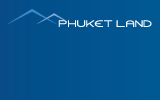Further Reading:
Property Taxes and Transfer Costs

I an American Expatriate living in Jakarta. My wife and I would
like to buy a holiday home in Phuket, with the view to retiring there
in 8 years from now. However, we are concerned about TAXES. We understand
there would be tax on rental income, (if we decide to rent the property);
a property tax, or "rates"; and stamp taxes when we buy and
sell. Are there really so many taxes against a property in Thailand?
Are there any other levies or imposts? Is there a capital gains tax,
(if a gain occurs), when we sell?
Despite a recent (and still ongoing) transition from the Business Tax
to a VAT system (property still falls within the Business tax category)
Thailand has fairly well defined set of tax rates and procedures, but
like many thing in this country, the basic rules only tell you half
of the story. Interpretations, valuations, assessments, exceptions and
avoidance methods (or more often than not out and out evasion) significantly
cloud the issues and tax charges (usually in the favor of the tax payer).
Enforcement, while getting considerably better, is still in general
comparatively lax.
I will try to answer your questions briefly in the order that you are likely to encounter the various taxes related to purchase and ownership and resale of property. At the point of registration of a purchase (or lease) of real property a transfer fee of 2% (or just 1% in the case of a lease), a stamp duty of 0.5% and an income tax (variable rate) will be assessed on the greater value of the declared selling price (invariably understated) or the government listed minimum assessed value (updated on a periodic basis, but usually well below current market value). Who is to pay these taxes is not very clearly defined (but transfer will not be approved until someone pays them) so it is wise to specify them carefully in any purchase offer or contract.
The income tax assessed on a private sale (a corporate sale is quite different - and I don’t have space to cover it in this article - but basically all proceeds and expenses go into your corporate returns in the internationally accepted way) is not as it would be in many countries a capital gains tax, but is calculated as a function of the selling price and the number of years that the property has been owned by it’s previous owner.
The basic assumption being that the longer someone has owned the property the more income they have earned. Even if you genuinely had a capital loss - who would believe you - you will still be liable to an income tax upon a sale. The exact calculation is complex, but except for very highly valued properties (in which case you can doubtless afford a good tax consultant) the final income tax figure usually falls between 1 and 4% of the declared/assessed sale price.
One you have acquired you new property, you will be pleasantly surprised
to find that you are not called upon to pay a property tax (or "rates").
The downside of this is of course that public services are limited and
you will often find that you have to make private arrangements for many
basic services such as garbage collection and even water supply. In
the case of a condominium purchase many of these services will be provided
by the condo management company and will be included in you common property
maintenance fees.
If you decide to let your property, you will be assessed an income tax on any rental income. Marginal rates start at just 5% for the first 100,000 Baht and then rise progressively to a top rate of 37% for income above 4,000,000 Baht. In addition to this properties that are rented will also be assessed a local tax (collected by the district office) called a Structures Usage Tax. This tax, is assessed at the rate of 1 and ? months nominal rental income per annum. While this at first site appears a rather steep levy, it should be noted that the nominal rent is very negotiable (typically from 5 to 15% of market values) and in the case of individual privately owned (and let) properties the collection rate is very low.
One final point of note is the assessment of Business tax on the (speculative) sale of a property. Speculative sales previously defined as a sale within one year of purchase, (but recently amended to five years) are in addition to the usual transfer fees and stamp duties, subject to a 3.85% Business tax.


